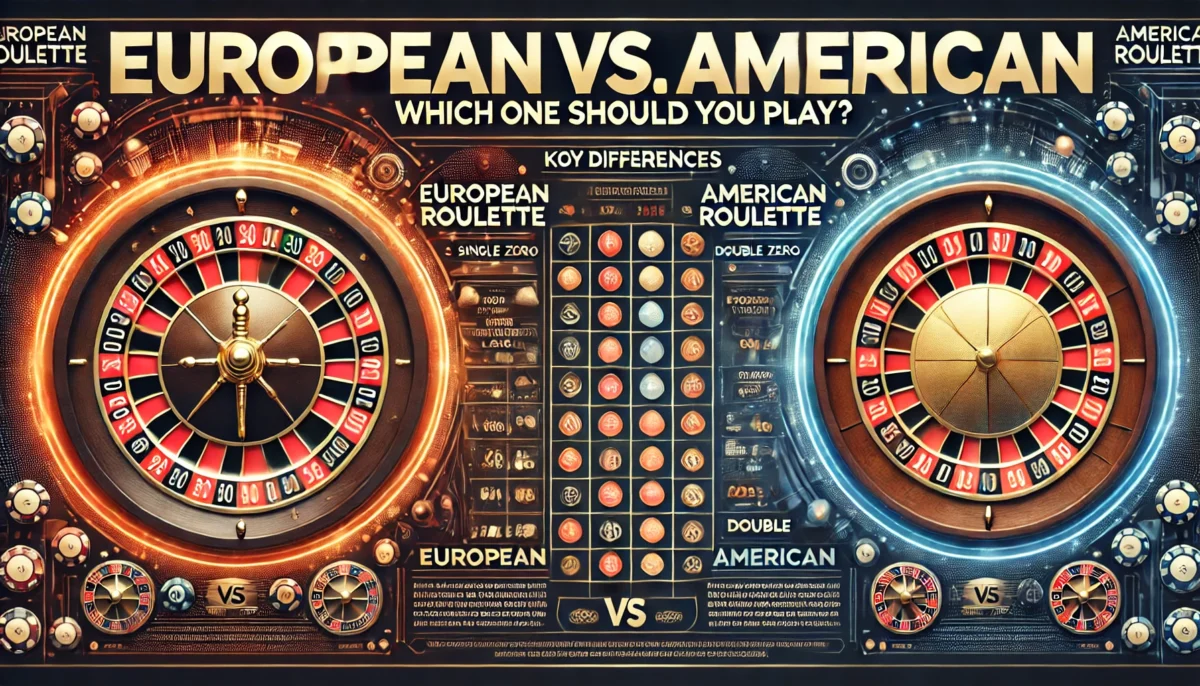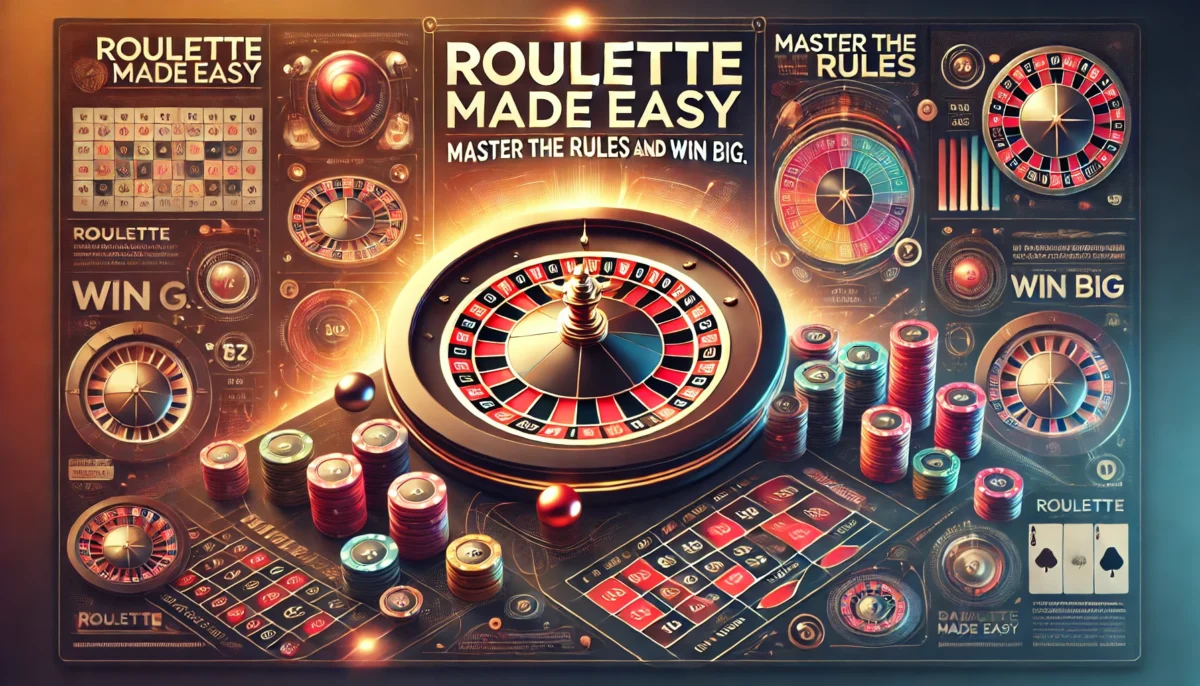Roulette is one of the most popular casino games in the world, captivating players with its spinning wheel, bouncing ball, and the chance to win big. While the game’s basics remain the same across variations, the type of roulette you choose can significantly affect your odds of success. The two most common versions, European and American roulette, may look similar, but key differences can make one a better choice than the other.
In this guide, we’ll explore the differences between European and American roulette, compare their odds, and help you decide which version is best suited to your playstyle and goals. By understanding these distinctions, you can make smarter choices at the table and maximize your enjoyment and winnings.
The Basics of Roulette
Roulette is a game of chance where players place bets on where a ball will land on a spinning wheel. The wheel is divided into numbered pockets, each alternately colored red and black, with one or two green pockets for the zero(s). The objective is to predict the outcome of each spin, whether by betting on specific numbers, groups of numbers, or broader outcomes like color or odd/even.
European Roulette: The Player-Friendly Option
European roulette is widely regarded as the better choice for players due to its lower house edge and player-friendly rules.
Features of European Roulette
- Number of Pockets: The wheel has 37 pockets, numbered 1-36 and a single green zero.
- House Edge: The single zero creates a house edge of 2.7%, one of the lowest in any casino game.
- Betting Options: Standard bets include inside bets (e.g., single numbers, splits) and outside bets (e.g., red/black, odd/even).
Special Rule: La Partage
In some European roulette games, the La Partage rule further reduces the house edge. If you place an even-money bet (e.g., red/black, odd/even) and the ball lands on zero, you lose only half your wager instead of the entire amount. This effectively lowers the house edge to 1.35% for those bets.
Why Choose European Roulette?
- Lower Risk: The single zero reduces the house edge, increasing your chances of winning.
- Better Payouts: With fewer pockets, your odds of hitting a specific number or combination are higher.
- Ideal for Beginners: The simpler layout and favorable odds make it a great starting point for new players.
American Roulette: Higher Risk, Lower Reward
American roulette, commonly found in U.S. casinos, adds an extra layer of challenge with its additional double zero pocket.
Features of American Roulette
- Number of Pockets: The wheel has 38 pockets, numbered 1-36, a single green zero, and a green double zero.
- House Edge: The addition of the double zero increases the house edge to 5.26%, nearly double that of European roulette.
- Betting Options: Similar to European roulette, with the same inside and outside bets.
The Five-Number Bet
American roulette introduces a unique bet covering 0, 00, 1, 2, and 3. While the payout is 6:1, it comes with an astronomical house edge of 7.89%, making it one of the worst bets in the game.
Why Choose American Roulette?
- Availability: It’s often the only option in many U.S. casinos.
- Challenge: Some players enjoy the added difficulty and risk.
- Familiarity: It’s the version featured in many movies and pop culture references.
Comparing the Odds
The primary difference between European and American roulette lies in the number of pockets, which directly impacts the odds for each type of bet.
| Bet Type | Payout | Probability (European) | Probability (American) |
|---|---|---|---|
| Straight Up | 35:1 | 2.7% | 2.63% |
| Split | 17:1 | 5.4% | 5.26% |
| Street | 11:1 | 8.1% | 7.89% |
| Corner | 8:1 | 10.8% | 10.53% |
| Red/Black, Odd/Even, High/Low | 1:1 | 48.6% | 47.37% |
Key Takeaway: The lower house edge in European roulette makes it the better choice for players focused on maximizing their chances of winning.
Strategic Implications
European Roulette
- Focus on even-money bets like red/black or odd/even to benefit from the lower house edge, especially if the La Partage rule applies.
- Use progressive betting systems like the Martingale cautiously, as the reduced risk can help you recover losses more effectively.
American Roulette
- Avoid the five-number bet, as its high house edge makes it a poor choice.
- Stick to outside bets with higher probabilities to minimize the impact of the additional double zero.
Psychological and Gameplay Differences
While the odds are the most significant factor, the psychological and gameplay experiences differ between the two versions.
European Roulette
- Slower-paced gameplay, often accompanied by a more relaxed atmosphere.
- Players may feel more in control due to the reduced risk and lower house edge.
American Roulette
- Faster-paced, high-energy environment, often with larger crowds.
- The additional double zero can create more excitement for risk-takers but adds stress for cautious players.
Online Roulette: The Best of Both Worlds
For players who want flexibility, online roulette offers both European and American variants, allowing you to choose the version that suits your preferences.
Advantages of Online European Roulette
- Widely available with standard rules and La Partage options.
- Lower stakes and free play modes for practice.
Advantages of Online American Roulette
- Accessible for players in regions where American roulette is more common.
- Includes unique features like multi-wheel roulette or progressive jackpots.
Pro Tip: Always check the rules and house edge before playing online to ensure you’re getting the best possible odds.
Which Should You Play?
The choice between European and American roulette ultimately depends on your goals and preferences:
- Play European Roulette If: You want better odds, a lower house edge, and a more player-friendly experience.
- Play American Roulette If: You’re seeking a higher-risk challenge or it’s the only option available.
Final Thoughts
Roulette is a game of chance, but the version you choose can make a big difference in your long-term success. European roulette, with its single zero and lower house edge, offers a more favorable experience for most players, while American roulette appeals to those who enjoy a faster-paced, higher-risk game.
By understanding the differences and adjusting your strategy accordingly, you can maximize your enjoyment and improve your chances of walking away a winner. So the next time you approach the roulette table, you’ll know exactly which wheel to spin!

